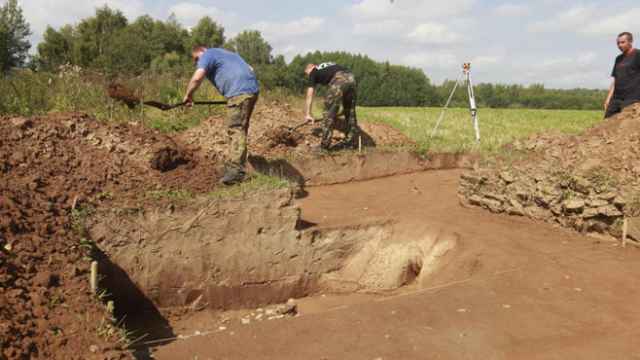The residents of Eurasia's extreme northeast were building elaborate wooden-floored houses as early as the 15th century B.C., according to new findings reported by Interfax on Thursday.
A dwelling with a floor made of wood and turf layers was found in layers of permafrost in Nunligran, an ancient settlement of the militant Chukchi people, a spokesman for the Bering archeological expedition said.
Nunligran is located on the Pacific shore of the Chukotka peninsula — the only part of Asia in the Western hemisphere, right across the sea from Alaska.
Now home to a population of 300, the settlement, situated on the same latitude as Reykjavik and Alaska's Fairbanks, was a whale-hunting village in the mid-second millennium B.C.
The house is the oldest such structure attributed to the Chukchi, a hunting-gathering indigenous people of northeastern Siberia.
The Chukchi were the butt of politically incorrect ethnic jokes in Soviet times — not unlike the Irish in Britain or Poles in the U.S. — but they have dominated the region for centuries.
They were one of the few indigenous people in the world to resist colonization: Tsarist Russia spent 150 years trying to conquer them and eventually incorporated them into the empire in the 19th century via negotiations.
Archeologists will continue to study the ancient house during the next warm season, the expedition spokesman said.
Items already found inside the dwelling include a wooden ski, several harpoon tips and a ochre-painted doll made of polar bear fur.
A Message from The Moscow Times:
Dear readers,
We are facing unprecedented challenges. Russia's Prosecutor General's Office has designated The Moscow Times as an "undesirable" organization, criminalizing our work and putting our staff at risk of prosecution. This follows our earlier unjust labeling as a "foreign agent."
These actions are direct attempts to silence independent journalism in Russia. The authorities claim our work "discredits the decisions of the Russian leadership." We see things differently: we strive to provide accurate, unbiased reporting on Russia.
We, the journalists of The Moscow Times, refuse to be silenced. But to continue our work, we need your help.
Your support, no matter how small, makes a world of difference. If you can, please support us monthly starting from just $2. It's quick to set up, and every contribution makes a significant impact.
By supporting The Moscow Times, you're defending open, independent journalism in the face of repression. Thank you for standing with us.
Remind me later.





